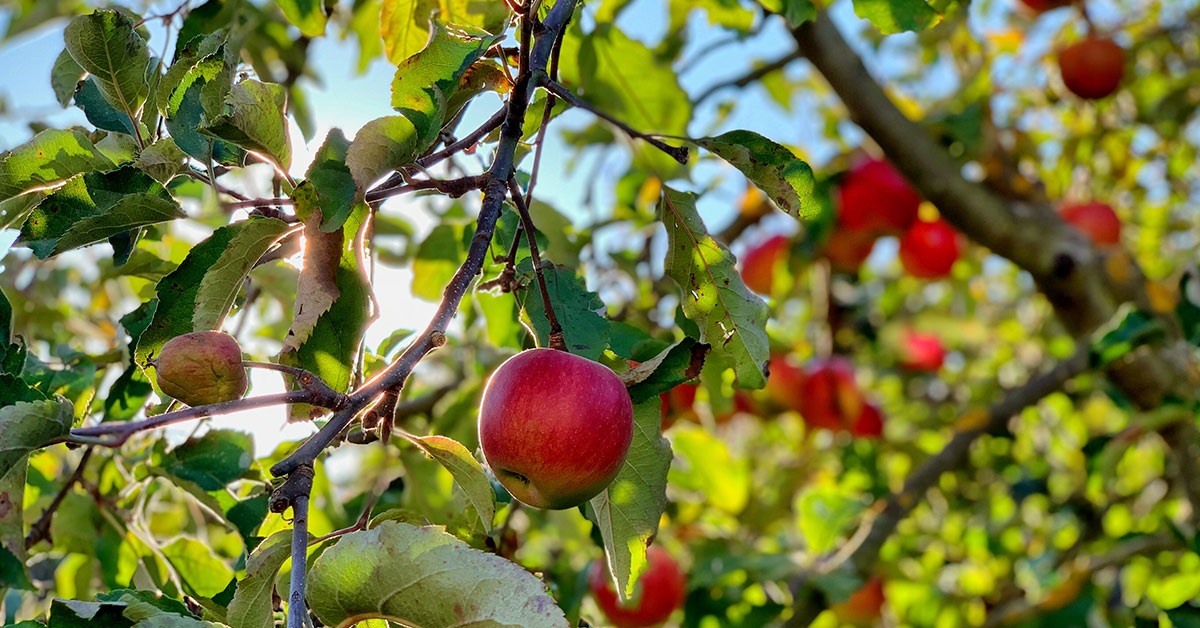Welcome to our comprehensive guide on the best fruit trees to grow in Zone 9! If you’re fortunate enough to live in this warm and sunny region, you have a fantastic opportunity to cultivate a wide variety of delicious and bountiful fruit trees. Zone 9 encompasses areas with mild winters and long, hot summers, making it an ideal climate for many fruit-bearing trees.
Whether you’re a seasoned gardener or just starting your fruit-growing journey, this article will provide you with valuable insights and recommendations on the most suitable fruit trees that thrive in Zone 9.
From citrus trees to stone fruits and everything in between, get ready to discover the perfect additions to your garden that will reward you with an abundance of homegrown, flavorful fruits. Let’s dive in and explore the best fruit trees for Zone 9!
The best fruit trees to grow in Zone 9
The warm climate of Zone 9 provides an excellent opportunity for gardeners to grow a wide variety of fruit trees. However, it is important to choose the **best fruit trees to grow in Zone 9** that are well-suited to the specific conditions of this region. Here are some top recommendations for fruit trees that thrive in Zone 9:
- Citrus Trees: Zone 9 is renowned for its ideal conditions for growing citrus trees. Varieties such as oranges, lemons, limes, and grapefruits flourish in this climate. They require full sun, well-drained soil, and regular watering to produce juicy, flavorful fruits.
- Peach Trees: With their deliciously sweet and juicy fruits, peach trees are a popular choice for Zone 9 gardeners. These trees require a chilling period in winter to set fruit properly. Choose varieties that are specifically bred for low-chill requirements to ensure successful fruit production.
- Fig Trees: Fig trees are well-suited to the warm climate of Zone 9. They are relatively low-maintenance and can thrive in various soil types. Figs are known for their unique taste and can be enjoyed fresh or used in a variety of culinary creations.
- Avocado Trees: Avocado trees are a fantastic addition to any Zone 9 garden. They require well-drained soil and protection from frost during the winter months. With proper care, these trees can yield a bountiful harvest of creamy, nutrient-rich avocados.
- Pomegranate Trees: Pomegranate trees are highly adaptable and can thrive in the warm conditions of Zone 9. They are known for their vibrant red fruits filled with juicy arils. Pomegranate trees require full sun and well-drained soil to produce an abundance of delicious fruits.
- Mango Trees: Mango trees are a tropical delight that can be successfully grown in Zone 9. They require a frost-free environment and well-drained soil. Mangoes are known for their sweet, juicy flesh and are a favorite among fruit enthusiasts.
When selecting fruit trees for Zone 9, it is crucial to consider factors such as chill hours, heat tolerance, and disease resistance. Additionally, proper care and maintenance, including regular watering, fertilizing, and pruning, will help ensure the health and productivity of your fruit trees. With the right selection and care, you can enjoy a fruitful garden filled with the **best fruit trees to grow in Zone 9**.
Avoid growing these fruit trees in Zone 9
When it comes to selecting fruit trees for Zone 9, it is essential to choose varieties that can thrive in the warm and often humid climate of this region. While there are several fruit trees that flourish in Zone 9, it is equally important to be aware of the ones that may struggle or should be avoided altogether.
Apple trees are generally not recommended for Zone 9 due to their high chilling requirements. These trees need a certain number of hours of cold temperatures during winter to break dormancy and set fruit properly. Since Zone 9 has mild winters, apple trees may not receive enough chilling hours, resulting in poor fruit production or even failure to bear fruit altogether.
Similarly, cherry trees are not well-suited for Zone 9 due to their high chilling requirements. They typically require more cold temperatures than what this region can provide, making it challenging for them to thrive and produce abundant fruit.
Peach trees can be a bit tricky in Zone 9 as well. While there are some low-chill peach varieties available that can tolerate the milder winters, they may still struggle with the hot summers and high humidity. Peach trees are susceptible to various fungal diseases that thrive in warm and humid conditions, making it difficult to maintain their health and productivity.
Lastly, pear trees are generally not recommended for Zone 9 either. Similar to apples and cherries, pears have high chilling requirements and may not receive sufficient cold temperatures in this region. As a result, pear trees may struggle to set fruit and may not perform well overall.
While these fruit trees may not be the best choices for Zone 9, there are still numerous other options that can thrive and produce an abundance of delicious fruits in this climate.
Fruit tree growing tips
Growing fruit trees in Zone 9 can be a rewarding experience, as this region offers a long growing season and mild winters. To ensure success, here are some tips and best practices for cultivating the best fruit trees in Zone 9:
- Select the right fruit trees: When choosing fruit trees for Zone 9, it’s important to consider the climate and soil conditions. Some of the best fruit trees to grow in this zone include citrus trees like oranges, lemons, and grapefruits, as well as figs, pomegranates, and avocados. These trees are well-suited to the warm temperatures and can thrive in the sandy or loamy soils commonly found in Zone 9.
- Sunlight and location: Fruit trees generally require full sun exposure to produce abundant and high-quality fruits. Ensure that your chosen location receives at least 6-8 hours of direct sunlight daily. Additionally, consider planting your fruit trees in a spot protected from strong winds, as they can damage the delicate branches and affect fruit production.
- Soil preparation: Before planting your fruit trees, it’s essential to prepare the soil properly. Zone 9 typically has sandy or loamy soil, which may lack essential nutrients and organic matter. Amend the soil by adding compost or well-rotted manure to improve its fertility and drainage. Conduct a soil test to determine if any specific nutrients are lacking and make necessary adjustments accordingly.
- Planting and spacing: When planting fruit trees, follow the recommended spacing guidelines provided by the specific tree variety. Proper spacing ensures adequate airflow between trees, reducing the risk of diseases. Dig a hole slightly wider and deeper than the tree’s root ball, gently spread the roots, and backfill with soil, ensuring that the tree is planted at the same depth as it was in the nursery container.
- Watering: Adequate watering is crucial for establishing healthy fruit trees. Young trees require regular watering, especially during the first year. Provide deep, thorough waterings to encourage deep root growth. Once established, fruit trees in Zone 9 generally require 1-2 inches of water per week, either through rainfall or irrigation. Monitor the soil moisture levels and adjust watering accordingly, ensuring the soil remains moist but not waterlogged.
- Fertilization: Fruit trees benefit from regular fertilization to support healthy growth and fruit production. Apply a balanced fertilizer in early spring and again in late summer, following the manufacturer’s instructions. Organic options like compost, aged manure, or fish emulsion can also be used to provide nutrients to the trees.
- Pruning and maintenance: Pruning fruit trees is essential for maintaining their shape, promoting airflow, and removing dead or diseased branches. Perform pruning during the dormant season, typically in late winter or early spring, before new growth begins. Regularly check for pests and diseases, and promptly address any issues to prevent them from spreading.
By following these tips and best practices, you can successfully grow the best fruit trees in Zone 9, ensuring a bountiful harvest of delicious and healthy fruits. Remember to consult local nurseries or agricultural extension offices for specific advice tailored to your region.

